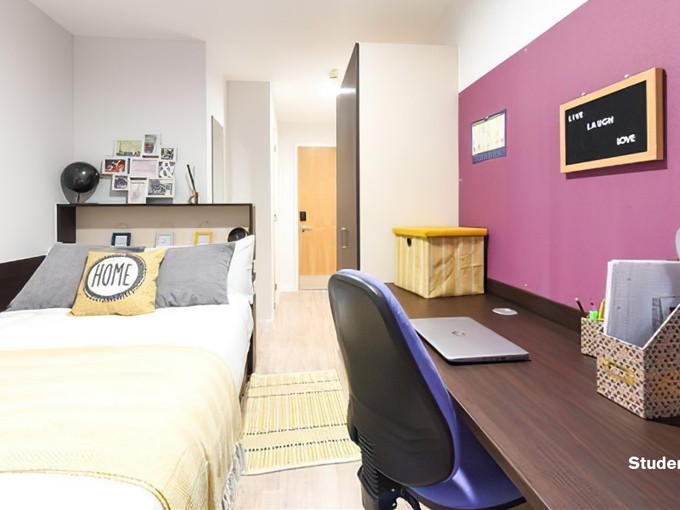The interdisciplinary approach which underpins this programme offers trainee Counselling practitioners a fusion of new and traditional approaches, backed by research.
The foundation of this programme draws on the work of Carl Rogers and the therapeutic relationship; the focusing work of Eugene Gendlin, and the dialogic and experiential work of the Gestalt tradition. From this, the contemporary approach of Emotion-Focused Therapy (EFT) opens up greater access of human emotion, as it engages with a close interest in the growing understanding of neuroscience and how emotions function differently from cognition in the brain.
The theory will underpin the application to practice through a therapeutic placement comprising of 100 clinically supervised practice hours. In addition, students will undertake a minimum of 25 hours of personal therapy which will support and strengthen both personal and professional development.
The programme will be taught in small groups so that the students have a significant opportunity to engage in the practice and development of their therapeutic competence. In addition, students will be taught through formal lecture and seminar groups where there will be an opportunity to discuss with each other and the tutors, the rich, diverse and often complex issues addressed in the programme.
Psychotherapeutic Practice: Humanistic (MA) is accredited by the National Counselling Society (NCS) and, subject to the Terms & Conditions, is a route onto a national register of counsellors which is accredited by the Professional Standards Authority (PSA).
Course details
- On-campus
- Part-time
- English
Why choose this course?
What you will learn
The Psychotherapeutic Practice: Humanistic (MA) is a three-year programme set at Level 7. However, there is an expectation of incremental development in theoretical knowledge, personal and professional development and practice competence as the student progresses through the programme. The modules have been designed to support this development of competency. The MA is suitable for students with no clinical practice experience.
The structure will ensure that students are highly trained practitioners that can work with a range of mental disorders and have the skills and knowledge to be classed as qualified psychotherapists.
This programme utilises both large classroom spaces as well as small counselling rooms to ensure ethical and confidential provision for practice. Sessions can be recorded for training purposes.
Students are required to work within local agencies to gain their 100 hours of clinically supervised practice. This can include work within symptom specific organisations such as those offering drug and alcohol rehabilitation; bereavement Counselling and women’s issues. Also, our students have completed placements within the NHS, educational settings and within social services.
Compulsory
(30 credits)
(30 credits)
(30 credits)
(30 credits)
(60 credits)
Disclaimer
-
We listen to student feedback and insights from industry and from professionals to ensure that course content is high-quality and up-to-date, and that it offers the best possible preparation for your future career or study goals.
For this reason, there might be modifications to the content of your course over time, to keep up to date with changes in the subject area or in the sector. If a module is no longer running, we’ll make sure to keep you informed, and work with you to choose a different suitable module.
Ratings and Rankings
Staff
Our People
You will be taught and supported by a wide range of professional staff and teams here to help you get the university experience you are looking for. Our teaching staff were ranked 2nd in Wales for assessments and feedback (NSS 2023) meaning the comments you get back from your work will help you learn. Our commitment to your learning has seen our students place us as Top 10 in the UK for Lecturers and Teaching Quality. Find out more about our academic staff who teach across our courses.
Accommodation

Swansea Accommodation
Swansea has a huge student population, and the variety of accommodation available will leave you feeling spoilt for choice. Various purpose-built student accommodation providers provide accommodation in Swansea, and the accommodation team can guide you through your options. It will offer ongoing support throughout your time as a UWTSD student.
Further information
-
A good standard undergraduate degree in a compatible subject in the Humanities or Social Sciences.
An introductory skills course: evidence of what was covered and at what level will need to be produced at interview.
Places for the course are offered subject to interview. Applicants for the programme will be given an opportunity to come and talk to the lecturers so that you can assess whether this is the course for you and we can also make that assessment.
-
This programme has a range of assessment strategies, including presentations, written assessment and skills practice recordings.
-
- There is a requirement that students undergo a minimum of twenty-five hours of personal therapy with an appropriately qualified practitioner.
- Clinical supervision. If this is not provided by the placement, it will involve an additional cost.
- Professional Indemnity and Liability Insurance
- A current, enhanced DBS certificate
- Professional Membership of the National Counselling Society (or equivalent).
- There is a residential weekend with this course.
-
You may be eligible for funding to help support your study. To find out about scholarships, bursaries and other funding opportunities that are available, please visit our Bursaries and Scholarships section.
-
Successful completion of this programme will enable students to practice as fully qualified therapists. Typical pathways have included work within
- Social Care
- The Prison Service
- Emergency Services
- Charitable organisations and paid work within the voluntary sector
- Primary care
- Educational roles
- Trainers
- Lecturers
- Social Researchers.
